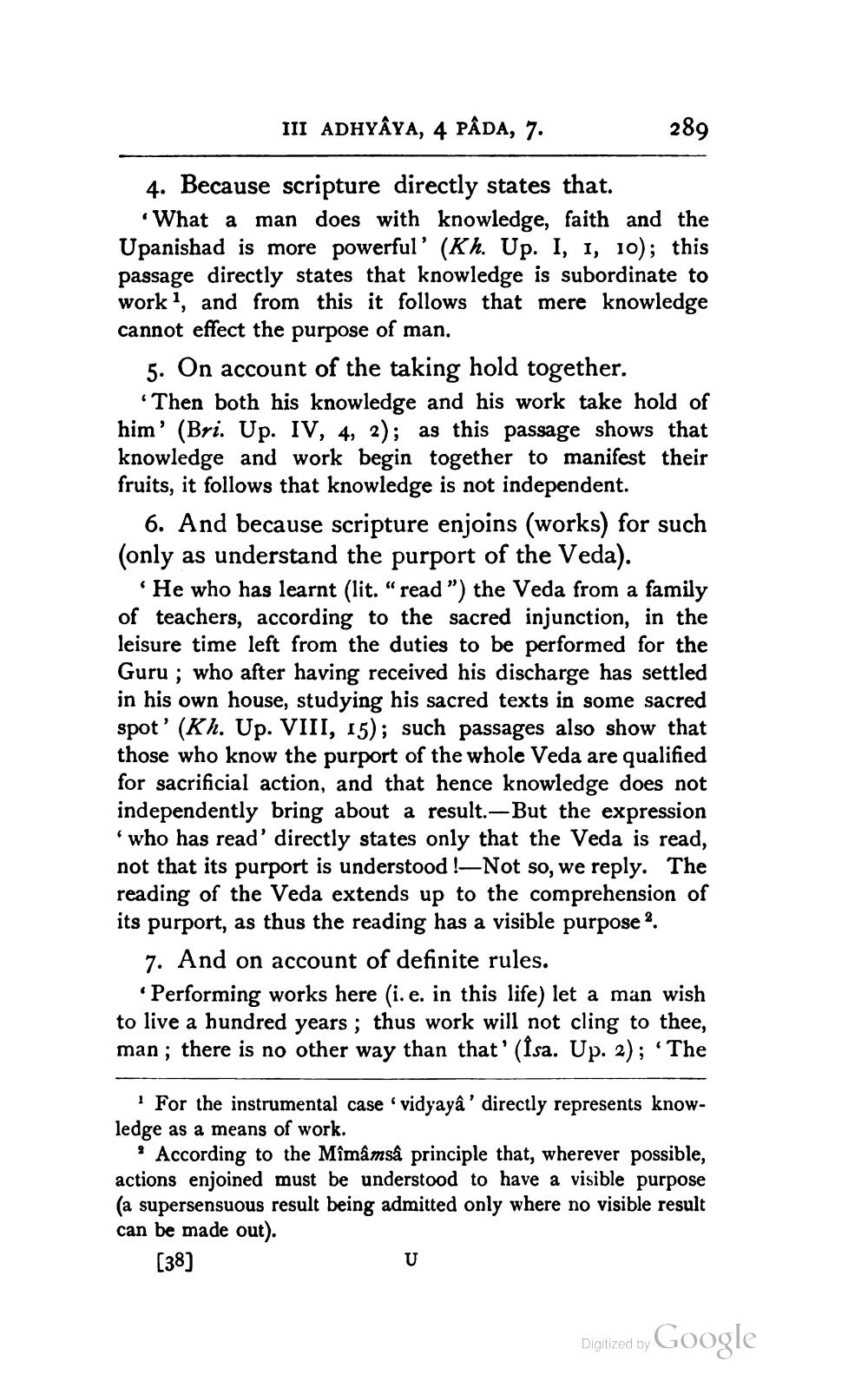________________
III ADHYÂYA, 4 PÂDA, 7.
289
4. Because scripture directly states that.
What a man does with knowledge, faith and the Upanishad is more powerful' (Kh. Up. I, I, 10); this passage directly states that knowledge is subordinate to work?, and from this it follows that mere knowledge cannot effect the purpose of man.
5. On account of the taking hold together. *Then both his knowledge and his work take hold of him' (Bri. Up. IV, 4, 2); as this passage shows that knowledge and work begin together to manifest their fruits, it follows that knowledge is not independent.
6. And because scripture enjoins (works) for such (only as understand the purport of the Veda).
'He who has learnt (lit.“read”) the Veda from a family of teachers, according to the sacred injunction, in the leisure time left from the duties to be performed for the Guru : who after having received his discharge has settled in his own house, studying his sacred texts in some sacred spot' (Kh. Up. VIII, 15); such passages also show that those who know the purport of the whole Veda are qualified for sacrificial action, and that hence knowledge does not independently bring about a result.—But the expression
who has read' directly states only that the Veda is read, not that its purport is understood !-Not so, we reply. The reading of the Veda extends up to the comprehension of its purport, as thus the reading has a visible purpose 2.
7. And on account of definite rules.
Performing works here (i.e. in this life) let a man wish to live a hundred years ; thus work will not cling to thee, man; there is no other way than that'(Isa. Up. 2); 'The
For the instrumental case 'vidyayâ' directly represents knowledge as a means of work.
According to the Mîmâmså principle that, wherever possible, actions enjoined must be understood to have a visible purpose (a supersensuous result being admitted only where no visible result can be made out).
[38]
TT
Digitized by
Digilzed by Google




